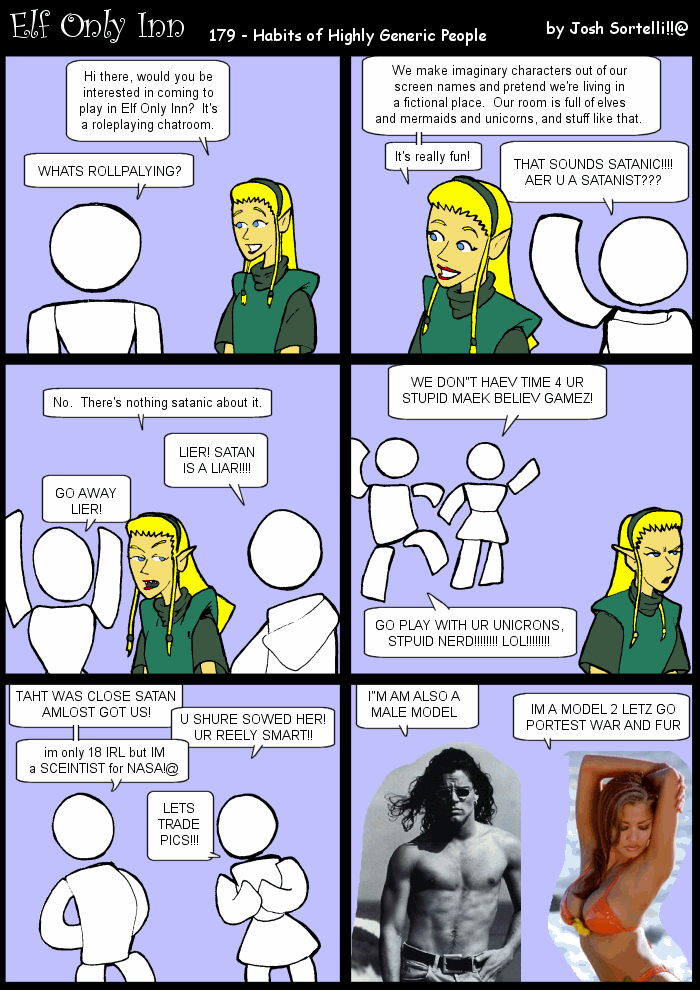
A cover for a collection of Isaac Asimov's short stories by Peter Elson
TL;DR Summary:
- Science Fiction setting; a just-colonized planet
- Inspired by Isaac Asimov, Robert Heinlein, Frank Herbert, Philip Dick and Peter Hamilton; all sci-fi authors.
- The colony is just getting set up; soil detox, water purification and building homes, as well as prefab buildings.
- Rip van Winkle themes; the colonists have been in suspension way longer than anticipated due to unforeseen difficulties. Some of them died in the tanks due to mechanical failure.
- Characters should have useful skills and trades that would come in handy in a working, self-sufficient colony. They are trained to be frontier people, to set up the colony for later. There are relatively few military types, though they have a militia-type familiarization with personal weaponry; these are engineers, farmers, electricians, technicians of various sorts.
- Technology level is roughly equivalent to what was shown in the Aliens movies, though there is AI, AI-assisted auto-fabrication and other advanced technologies with the potential for more.
- Advanced level RP, but see below; I have a little note on advanced posting standards and the posting for this RP.
- Role Requests; I have certain roles that I want to fill out, but I also want some flexibility so that more than one character can fill another's role.
- You are also allowed to play several NPC's and semi-PC type characters, or even a second character, if you wish. There is one secret role request that will require an outright character later in the RP as well.
- Character roles are not first-come, first-served; characters will be accepted on the basis of how they fit the plot (though I will bring up concerns in PM, and you may submit first in PM for feedback in private before posting.)
- I doubt this is a problem, or at least I hope this is an unnecessary point: Keep the OOC polite.
- BTW, this actually was figured out before Mass Effect: Andromeda and Lost in Space, but I fully acknowledge the similarities.
- Looking to establish a system of quickly generating characters and lore without a long process – I usually have people turn their character pages into a single place to post that new content in a ‘stub’ form.
In Character Info:
In 2182, Voyager Industries offers a new life to the bold and the intelligent, the cream of society; others have to pay companies to take them to a new life on an established planet or buy criminals or hire the desperate as slave labor to hack out the wilds and turn them habitable for follow-on colonists, but Voyager instead looks for people with the right skills, talents, fitness and psych profiles to staff their colonies; it's a long term investment. The colonists come to the new planet, carve civilization out and earn their keep as workers, using their industriousness and natural talent to set up the planet for those who come afterward. They are not paid wages, but are given a stake in the planet's profits, a hefty incentive that brings the best and the brightest marching for Voyager's offices.
The trip is decades long in stasis tanks in ships called 'colonial arks' but at the end of the voyage is a new world. They arrive seemingly on schedule but with several systems failures in their colonial ark, things that the maintenance log does not explain. The maintenance staff on ship at the time died, and no one was 'thawed' out to take up their shift for some reason. The colonists emerge on their new planet, expected to build the fundamentals of living with their equipment; set up sustainable food, power sources, habitation and terraforming.
They think everything is going according to plan when they land. Then they find out that they are hundreds of years off their anticipated landing date.
Out of Character Info:
The characters will be colonists on this new planet, very bright, accomplished people who are then further winnowed out based on their ability to work under pressure, adapt in tough situations and endure physical adversity. Once selected, the candidates are put through rigorous training and cross-training to make them competent in space and once on the ground. It is almost like military training, but it's more oriented toward how to build and repair things, how to dig ditches and encampments, and the fundamentals of sanitation and so forth. People would come in with skills and educations in various areas, but they'd also be cross-training to learn how to do the jobs of others; the idea is to set up a colony that can sustain itself while expanding for follow on colonists. It is a first; colonies have never been established so far out in space before; most of the colonies are closer to Earth; this colony will be fa more autonomous.
The colony isn't just about survival, of course, it is about marketability. They are trying to make a nice place to live, a space colony version of the suburban American dream, a place you want to spend time, a lifetime, living in. The idea is to provide good jobs, a nice environment, amenities, comforts and the sort of society they want to live in. It's an attempt to create an ideal place to live for their sort of people; the idea is to also find and capitalize upon what native resources exist; stocks of food, medicine and technological parts will need replacing, and that means setting up the means to produce medical compounds and parts, as well as the difficult task of setting up sustainable agriculture on-planet. But the technology Voyager provide and the skills of the settlers should be sufficient for the task and then some; it is expected that there will be coffee shops with wireless internet within the first year of operation, if all goes according to the plan; yet the expectation is that the colonists will move ahead of schedule, because these are energetic and educated people, the cream of the crop, deliberately recruited for their motivation as much as their skills.
Theese colonist highly capable people, often with extremely good reputations in their respective fields, and they largely are fleeing Earth's bullshit and are trying to start over. Colonization by this sort of person is viewed as a slightly innovative concept, or one doomed to fail. To date, colonies are started with manufacturing and resource extraction goals in mind and the colonists are often deportees and otherwise signed under duress rather than a sense of adventure -- troublesome political groups, ethnic/religious groups and outright criminals are often your typical colonists in the first wave, worked under what amounts to slavery conditions in the Solar System, or, at best, the lunar modules in the nearest stars. Voyager's concept is different, billed as the way forward and the next step in Human expansion into the stars. Much rides on the success of this colony.
Of course, there is a twist. The colonists are several hundred years out of date when they finally do land; the trip was supposed to take decades, but there was a miscalculation in navigation; an asteroid or other anomaly got in the way of the ship and the navigation computer automatically corrected course to avoid this, throwing off the ship's arrival time...and disabling some of the drive systems in the process. To make matters worse, the computer system had to switch to a backup near arrival; the clock and calendar do not reflect the true date; as far as the colonists are aware, they're on schedule, though they arrived with dead crew; the maintenance shift that was on duty when the disaster happened died and no other maintenance shifts thawed out; the ship arrived badly damaged but intact enough to do its job.
What the colonists know when they land is that they must get to work and wait for the follow-ups, the contact from Voyager Inc, and the infusion of people paying to live on their planet. They don't realize that anything is chronologically amiss at first, because the building of the colony is consuming them; it's a hard, spartan life akin to that of colonists on Earth's North American continent in the 17th century; making something out of a wild and untamed land, living rough and making do without a lot of the creature comforts of modernity; but they signed on for a different life, out of a sense of idealism.
As it turns out, that idealism is out of date and they are an anachronism.
Colony Profile
Voyager Incorporated started in the early 2100's as a communications satellite manufacturer using the latest in materials and communications technology. However, in 2164, a team led by Dr. Neill Scott used original work by the young MIT graduate to create the Nagashima-Ashley-Scott Communications Array (NASCA) that stretched the boundaries of viable communications between colony worlds of Earth, at the time limited to Mars and the Solar System and very nearby stars, for which communication, limited to light speed, was viable. The technology was initially meant to enable faster communications uplink between extra-solar probes and Earth, but also, as a consequence, made colonization beyond the Solar System viable. This did not speed up the ability of ships to arrive on new planets and return to Earth, but it did allow for faster communication once those links were made.
Before, colonization beyond Pluto wasn't happening because of the loss of contact, but now it was possible...though colonization focused on buying convicts and undesirables from various regimes in an attempt to gain cheap labor that no one would care about, disposable people. Only a few really worried about the welfare of convicts, for the most part, or really concerned themselves with the conditions they worked under in these mining colonies. But what did rankle, particularly in the scientific community, was that their innovations were taking convicts and corporate suits to the stars and benefitting the suits, but the rest of humanity was generally stuck on Earth, or maybe the Lunar or Martian colonies, or perhaps the Jupiter or Saturn moons. The main adventure, colonizing an actual planet on the fringes that could support life, seemed unlikely.
Voyager was doing well though; it monopolized communications technology through NASCA patents and an army of the sharpest lawyers on Earth, and it managed to spin off technologies allowing limited use of faster-than-light travel derived from the initial breakthrough in order to create probes that could stretch further out into space, and report back. When a suitable planet was discovered, with a very primitive plant and insect life only and a soil type that could be made compatible with Earth plants after processing, the Aeneas project was announced, fueled largely by the passion of Dr. Neill Scott, who very publicly signed himself on as the first colonist and took on the role of the Executive of Aeneas...to the secret relief of much of the board of Directors.
Scott, always the visionary, announced the following: Aeneas was a colony by scientists for humanity, a better way forward than sending slaves into space to finish out their lives mining out of some airless rock, and that the Aeneas Project would return on investment immensely by facilitating research beyond Earth's wildest dreams of what could be accomplished back at home. It was a one-way ticket, but it brought the idealists marching; there was risk, but the prospective colonists reckoned the price worth paying for a variety of reasons. They had a chance to leave Earth, with all its man-made discontent and problems, there was the chance to make a better society away from it, the opportunity to engage in unparalleled research and make exciting new discoveries, a sense of mission in one's life work, a sense of calling in finding and taming a new place. That idealism infuses the scientific side of the venture. Even some of the people on the corporate side are buying into the party line, though the company sent minders to keep the project on task. So much was invested in the project, because Scott was a heavy hitter in not only the company, but as a stockholder and to the scientific community at large; he used his influence to purchase the development projects he needed, the technologies he wanted and saw use for. He drove Aeneas from a pipe dream and steered it into a reality.
With great fanfare, a sleepship, a particle sail-driven colonial ark, propelled with technology derived from the NASCA team's breakthroughs and which would carry the colony in stasis, was launched with a cargo of Humanity's best and brightest, its adventurous idealists who were willing to translate word and thought into deed and example.
And it was never heard from again.
Significant Events (Timeline)
- Day 1 - arrival near the planet Aeneas, systems working on backup, many systems are down and on backups. Due to damage to systems, auto-wakeup crew are activated immediately; the return from stasis to normal functioning takes seven days with computer systems monitoring it.
- Day 7 - the first technical and survey teams are woken up to establish the colony. Medical and Emergency Technical specialists quickly try to fix what is broken to stabilize the colonial ark for subsequent operations.
- Day 15 - surface landings and exploration of potential colony sites begin.
- Day 32 - the colony begins building on-planet, once surveys are completed. Construction rapidly progresses through pre-fabricated units.
- Day 140 - half of colonists thawed out and put to work. As the construction progresses, more units within the colony start their work.
- Day 212 - VICTOR, the colony's AI, is brought online.
- Day 223 - satellite net deployed, sending communications back to Earth with progress reports to Voyager Inc.
- Day 267 - agricultural self-sufficiency through hydroponics, including water purification and geothermal/solar power.
- Day 345 - (First day IC)
Character Roles
This is a list of the roles in the RP that I definitely know I will need, but one does not need to be exclusively these things and good ideas will always be considered; this is a wishlist of the stuff I've thought of. I also recommend people play more than one character.
- Vice Executive of the Colony - Head Honcho #2, a person that is capable of running things if the worst happens. (spoiler alert: the worst will happen.)
- Chief of [Random Science Here] Division - The whole point of the Project is to send some of the best minds out to help seed a new planet, create a new society...and this will require people who have what it takes to adapt the technology they have to the conditions they encounter, which could be anything. There are a number of departments and it’s entirely likely that people picked for this already have invented significant devices or technologies and have the experience/knowledge to add to that.
- The Head of Security - Security is on the colony for two reasons -- to deal with physical threats to the colony, though this is very much secondary to the counterespionage role. Other companies want Voyager's secrets. The Aeneas Project represents huge unknown outcomes and potential breakthroughs that could be worth everything to rival companies...or governments back on Earth. Security's task is made more difficult by the fact that scientists like to share things and that these scientists view Security as largely unnecessary -- Earth's in the rearview, right?
- Executive Assistant - VICTOR is useful, but some of the functions of a good assistant involve politics and dealing with the people. The Executive Assistant is an intern and an understudy of the colony's leadership, a bright young person that often finds themselves in the middle of office intrigue by dint of their position...they are also often sent for coffee, but that unglamorous image doesn't change that this person has access to the decisionmakers and works with them and that they are being groomed for a bigger job down the road.
- Rival Corporation's Agent - In return for financial consideration or other concessions, this character is trying to ferret out the secrets of Aeneas. Interested parties should PM -- this can be any character, but they will not be known to the other players.
- Security Executive Officer - If the character in charge of security is military, this person should have a police/counterintelligence background. If the character in charge of security has a police background, this person should be military. They should play off each other a bit.
- Chief of Operations - A catch-all for the guy responsible for repairs, maintenance and cleaning and so forth, the mundane stuff of the facility. This is not a glamorous job, but it is vital. Stuff needs to be moved, cleaned, dusted, fixed. You can't send a bunch of scientists out and expect them to fix their own plumbing...well, you can, but it's an inefficient use of their time.
- This list is not a complete list -- you can come up with other character concepts as you please. Most characters should be the heads of departments in the place, or second in commands. There are departments for biology, engineering and so forth.





